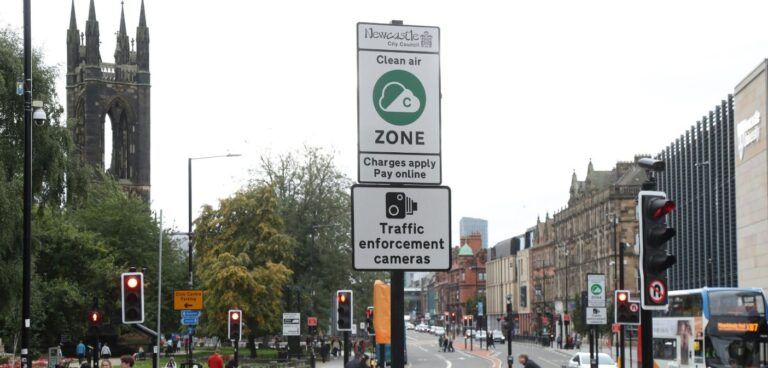A total of 43 signs and 38 cameras have been unveiled at entry points to the clean air zone (CAZ) around Newcastle and Gateshead to notify drivers of potential charges.
The camera will begin monitoring motorists from today (3 October) onwards to support preparations for the CAZ, including letters being sent to non-compliant vehicle owners to encourage them to switch.
Upcoming fees will be applied to older higher polluting taxis, vans, buses, coaches and HGVs. Private cars, motorbikes and low-emission vehicles will not be affected.
Further signage has been installed on routes approaching the CAZ, including electronic signs on key routes informing motorists of when charges will begin.
The idea behind the CAZ is to promote a healthier environment by improving air quality and encouraging people to switch to less polluting transport modes. The zone will encompass most of Newcastle city centre, plus routes over the Tyne, Swing, High Level and Redheugh bridges.
Advice and financial support is available for drivers to support the change to cleaner vehicles.
Jane Byrne, councillor and cabinet member for connected city at Newcastle City Council said: “Although the signage and cameras for the clean air zone are now in place, we want to reassure people that there will be no charges until next year and there is still time to get ready.
“Over the next two months we will be collecting details of vehicles entering the zone and contacting owners of non compliant higher polluting vehicles, which will be affected from January, to make them aware and provide information about how to get support and financial help.
“We know that van drivers are finding it more difficult to replace vehicles at the moment due to national supply issues and therefore we are delaying charges for those vehicles to give those individuals and businesses more time to prepare.”
The CAZ fees will be implemented in two stages. The first will involve non-compliant taxis, private hire vehicles, buses, coaches and HGVs, which will be charged from 30 January 2023.
Vans and light goods vehicles will not be charged until July 2023, marking an extended period to find alternatives due to national shortages.





